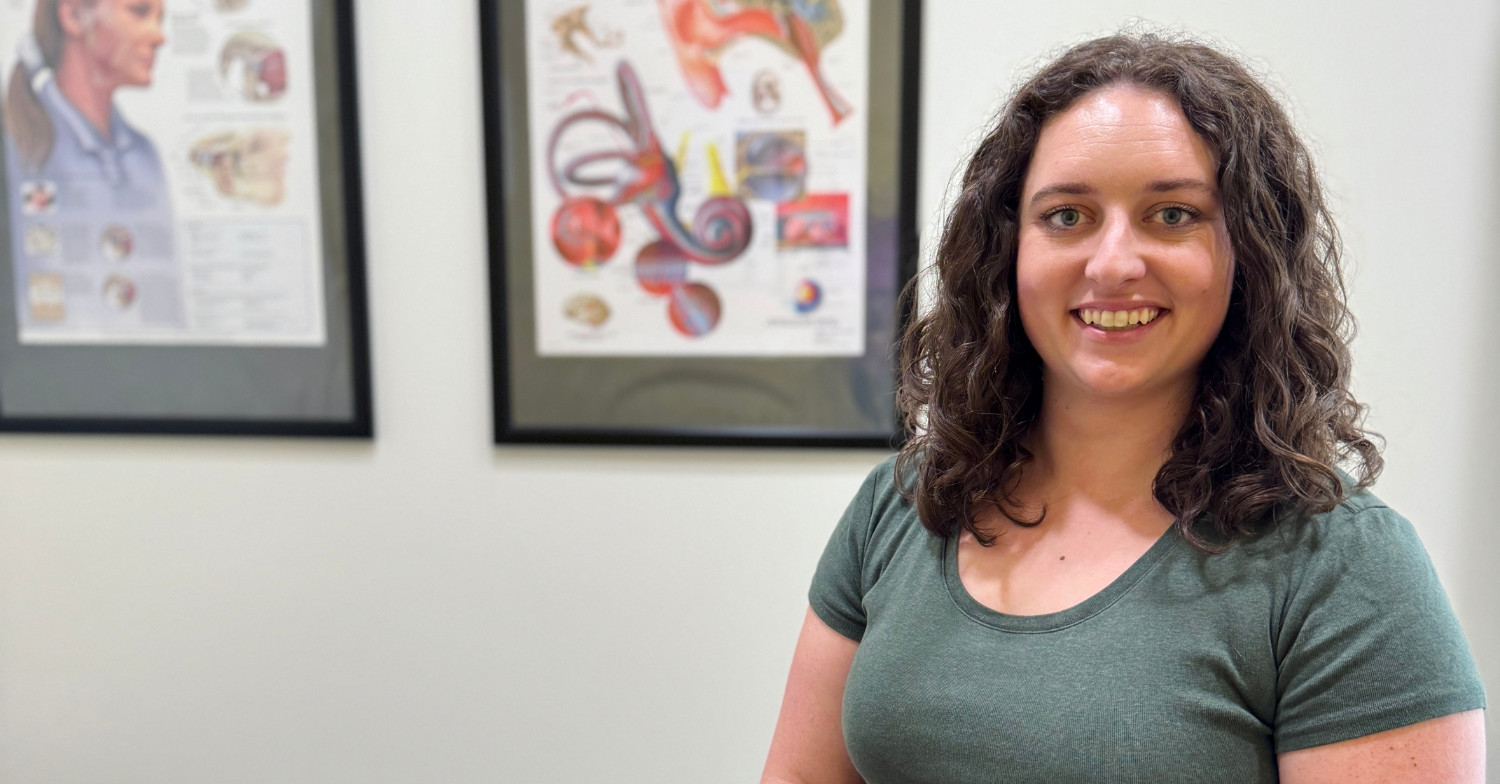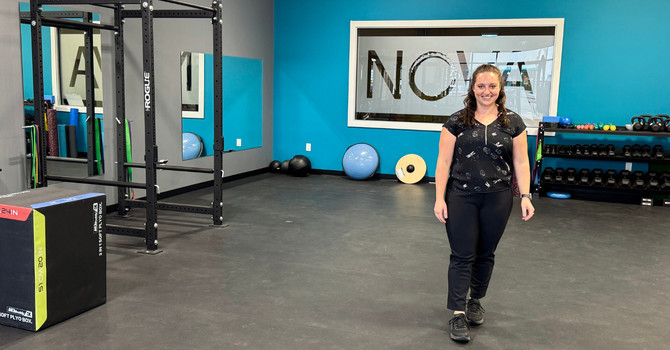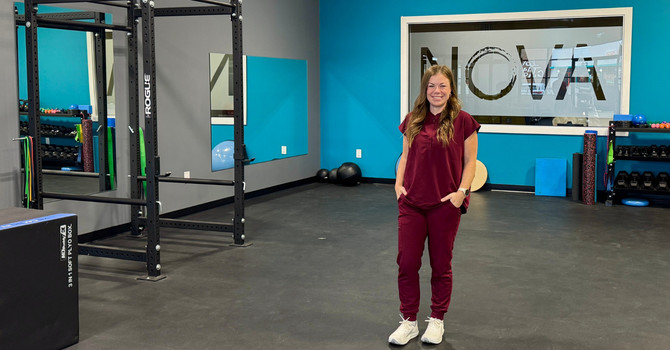
Have you ever experienced jaw pain, clicking when you chew, headaches that start near your temples, or tightness around your face and neck? These could be signs of a condition affecting your temporomandibular joint (TMJ)—a small but powerful hinge that plays a big role in your daily life. At Nova, Amber sees many client’s with TMJ dysfunction, and one often overlooked piece of the puzzle is the tongue—its position, control, and function can all have a profound impact on your jaw.
What Is the TMJ?
The temporomandibular joint connects your lower jaw (mandible) to the temporal bone of your skull, just in front of your ears on either side. It allows you to:
-
Open and close your mouth
-
Chew and swallow
-
Speak and yawn
-
Move your jaw side-to-side and forward-and-back
It’s a complex joint, acting more like a sliding hinge, and is surrounded by muscles, ligaments, a disc, and nerves—all of which can contribute to discomfort if something goes wrong.
What is TMJD?
Temporomandibular Joint Dysfunction (TMJD) refers to any disorder that affects the proper movement and function of the TMJ.
Common Symptoms of TMJD Include:
-
Pain or tenderness in the jaw, especially near the joint
-
Clicking, popping, or grinding sounds when opening the mouth
-
Limited range of motion or jaw "locking"
-
Headaches or migraines
-
Ear pain or fullness (often mistaken for ear infections)
-
Neck and shoulder tension
-
Facial pain or fatigue, especially after chewing or speaking
Associated Conditions
TMJD rarely occurs in isolation. It is often associated with or contributes to other issues:
-
Bruxism (teeth grinding or clenching): Often worsens at night and leads to jaw overuse
-
Neck dysfunction and poor posture: Especially forward head posture
-
Chronic stress or anxiety: Leading to muscle tension and habitual clenching
-
Sleep apnea or mouth breathing: Affects resting tongue posture and jaw mechanics
-
Headaches and migraines: Due to muscular and neural tension in the face and neck
The Tongue–Jaw Connection: Why It Matters
Your tongue plays a vital role in how your jaw functions, especially when it comes to posture, breathing, swallowing, and speaking. Yet, it's rarely addressed in traditional approaches to TMJD.
Why Is Tongue Position So Important?
The ideal resting tongue posture is:
-
Lightly suctioned to the roof of the mouth (palate)
-
Lips gently closed and teeth slightly apart (not clenched)
-
Breathing through the nose
This position supports healthy jaw alignment, facial development, and even cervical spine posture.
When the tongue rests low in the mouth or presses against the teeth the jaw may drift open or downward and the muscles of the jaw and neck work harder to stabilize.
Poor Tongue Control Can Lead To:
-
Jaw instability: Without the tongue supporting the palate, the jaw may overwork to compensate
-
Forward head posture: Mouth breathing and poor tongue posture often lead to the head jutting forward
-
Overuse of jaw and neck muscles: Especially the masseter, temporalis, and upper trapezius
-
Altered swallowing patterns: Leading to increased tension in the jaw and throat
-
Sleep-disordered breathing: A tongue that falls back during sleep can contribute to airway obstruction
How Do We Assess This at Physiotherapy?
At Nova, Amber looks at the whole picture when assessing TMJD. This includes a close examination of tongue posture and function, as these often play a critical role in jaw mechanics. During your assessment, she will begin by looking at your jaw and TMJ, evaluating both active and passive range of motion to see how the jaw moves on its own and with assistance. She will palpate around the joint and surrounding muscles to check for tenderness, muscle tightness, clicking, or locking.
Posture is another key component, so assessment will include looking at the head position and spinal alignment to determine how posture may be influencing the jaw.
When it comes to tongue function, she will check if you’re able to rest your tongue on the roof of your mouth (palate), the strength and endurance of the tongue and your ability to control the tongue into different movements.
The Role of Physiotherapy
At Nova, individualized care and a personalized plan help target the root cause of your jaw dysfunction, not just the symptoms.
Treatment May Include:
-
Manual therapy (hands on approach) for the TMJ, jaw muscles, neck, and shoulders
-
Intraoral techniques (muscle release inside of the jaw) to release tension in muscles like the pterygoids which are farther back in the mouth
-
Postural correction to support the head and jaw
-
Breathing retraining for nasal breathing
-
Neuromuscular re-education to teach proper tongue posture
-
Home exercises to strengthen jaw and tongue control
-
Stress management strategies including relaxation and diaphragmatic breathing
Tongue Posture Retraining: Start With These Tips
Here are a few simple steps you can practice daily to improve tongue awareness and jaw stability:
1. Find Your Resting Position
Place the tip of your tongue just behind your front teeth, then try to suction the rest of the tongue up to the roof of your mouth. Hold gently for 10 seconds. This is your ideal resting posture.
2. Tongue Press Exercise
Press your entire tongue up against the roof of your mouth and hold for 5-10 seconds. Do 5–10 reps, 2–3 times daily.This strengthens the tongue and helps condition the jaw to relax.
3. Diaphragmatic Breathing
Lie on your back or sit comfortably. Place one hand on your belly and one on your chest. Inhale slowly through your nose, feeling the belly rise. Exhale gently. This encourages nasal breathing and a relaxed jaw.
Your TMJ is a complex joint affected by your posture, stress levels, breathing patterns, and your tongue. The good news? You have more control than you think.
With proper education, awareness, and guidance from a physiotherapist, we look to:
-
Reduce jaw pain and tension
-
Improve breathing and posture
-
Enhance sleep and quality of life
If you’re experiencing jaw symptoms or have questions about your tongue posture, book an assessment with Amber HERE and let’s get started!




